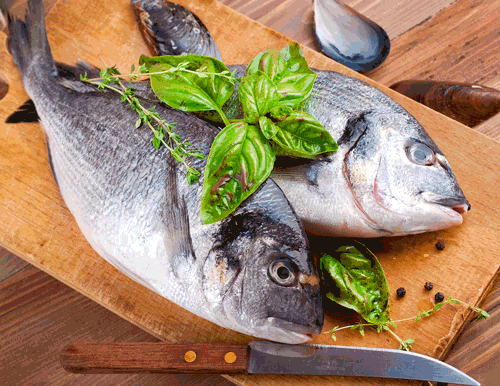By Kristy Podruchny
When it comes to chronic inflammation, nature has a lot to offer. Relief from rheumatoid arthritis (RA) often comes from natural remedies—in fact, 60-90 percent of patients with RA seek alternative medicine treatments according to a 2014 review published in “Arthritis.”
RA is an autoimmune disorder that causes severe joint pain as a result of an inflammatory response to the tissue that surrounds joints. The confused immune system attacks the person’s own tissue. What causes RA is still a mystery, but genetics and environmental triggers can play a role in developing the condition. As of now, there is no known cure or treatment to reverse the damage caused by RA, but there are treatments that can help alleviate pain and inflammation. Though there’s mystery surrounding RA, one way to look toward prevention is to focus on maintaining a healthy immune system with a healthy diet and an active lifestyle.
Treatment for RA usually includes non-steroidal anti-inflammatory drugs (NSAIDs) and injectable steroids. It’s common for patients to develop stomach ulcers from the NSAIDs and adrenal issues from the steroids. Despite this, there’s good news that can clear some of the fog surrounding an RA diagnosis—we’ve been provided a seemingly endless source of anti-inflammatories from nature’s medicine cabinet. The goal is to reduce as much inflammation as possible to relieve pain and stiffness.
Omega-3 fatty acids found in fish are ideal allies in the battle against inflammation. The eicosatetraenoic acid (EPA) and docosahexaenoic acid (DHA) from omega-3 fatty acids contain anti-inflammatory properties to reduce pain and swelling while helping support healthy immune function. They work by blocking inflammation pathways. All of this from the humble fish!

Curcumin, a polyphenol found in turmeric, gets a lot of attention for its potent anti-inflammatory properties. It does this by blocking inflammatory cytokines to disrupt the signaling process that is necessary for inflammation to occur. If you add turmeric to your food with the goal of drawing out its medicinal properties, don’t forget to increase its bio-availability by adding a healthy fat and pepper to the mix.
Ginger and turmeric are close relatives in the Zingiberaceae family, so it shouldn’t come as a surprise that ginger comes with a long list of health benefits. Ginger not only helps combat inflammation associated with RA, it soothes the GI tract, which can help treat stomach ulcers caused by NSAIDs. The anti-inflammatory properties in ginger come from phytochemicals like gingerols and shogaols, which inhibit genes from being activated to produce an inflammatory reaction.
Acupuncture, massage and hydrotherapy may offer some relief from the pain and swelling from RA. Find practitioners who know how to gently work with you. These treatments help increase circulation and release endorphins.
Lifestyle changes are encouraged in people diagnosed with RA. It’s important to stay active and eat healthy. Smoking, inactivity and an unhealthy diet can trigger symptoms of RA and should be avoided. Replacing those habits with meditation, food prepping and time in nature will pave your way to healing and relief.



